Sustainable development is at the heart of business
In the context of Vietnam's determination to implement its emission reduction commitments and deeply integrate into the global supply chain, green transformation is no longer an option but has become a mandatory requirement for the business community. In particular, with increasing pressure from major export markets such as the EU on emission reduction, Vietnamese businesses are facing unprecedented challenges.
However, this is also a golden opportunity for businesses to not only survive but also break through, grow sustainably and expand market share. Pioneering businesses that "go green" early will not only survive the difficult transition period but also have the ability to expand the market and strengthen their competitive position.
The online discussion series "Talk GreenBiz - Green Growth Compass" is organized by Dan Tri newspaper in collaboration with the Green Future Fund (under Vingroup Corporation).
The aim of the chain is to contribute to promoting green journeys in daily life, raising community awareness and calling on each individual to take action today to protect the environment for future generations.
A representative of AEON Vietnam said that sustainable development has been a focus of the company's development in recent times. In particular, the company has implemented many solutions for green development such as green transformation in operations.
Specifically, gradually replace packaging with environmentally friendly materials such as biodegradable bags, use bowls and trays made from sugarcane bagasse, stop selling disposable plastic products, convert plastic membership cards to mobile applications, paper vouchers (discount codes) to electronic vouchers...
Businesses also promote green consumption behavior with local customers such as not giving out plastic bags if customers eat food at the store, diversifying cashless payment methods, directly thanking customers for each transaction that refuses to use disposable plastic bags, and giving priority to customers who do not use plastic bags at the checkout counter...

Vietnam is determined to fulfill its commitments to reduce greenhouse gas emissions and deeply integrate into the global supply chain (Photo: iStock).
In fact, many retailers acknowledge that the green transition towards sustainable consumption has brought them many important opportunities, especially in improving operations and enhancing customer experience.
For operations, businesses can increase operational efficiency by optimizing processes, such as reducing the time it takes for customers to redeem reward points, thereby serving more customers with greater accuracy. At the same time, applying digital and green solutions helps save long-term costs, such as reducing the cost of printing cards, plastic bags and paper vouchers...
ESG implementation remains challenging
Although it brings many benefits to businesses and the economy , the implementation of ESG in industries and fields still faces many challenges. A representative of AEON Vietnam said that in the process of implementing solutions for sustainable development, businesses still face many difficulties with the problem of initial costs. Digital transformation and green transformation require large investments in technology, infrastructure and human resources, which increases the short-term operating costs of businesses.
Human resources with digital skills and knowledge of sustainable development in Vietnam are still limited, and retail businesses still face difficulties in recruiting and training these personnel. In addition, there are still a number of consumers who are not ready to change their traditional shopping habits. Businesses also face difficulties and challenges from the supply chain.

Green transformation requires huge investments in technology, infrastructure and human resources (Photo: Autodesk).
Mr. Do Xuan Quang, Deputy General Director of Vietjet Aviation Joint Stock Company, emphasized that businesses need to focus on comprehensive management of the supply chain in a green direction. These activities include transportation management, warehousing, and logistics data, with the goal of minimizing transportation and delivery time.
Increasing the reuse of products, packaging, materials... to create a comprehensive green supply chain will help businesses improve production and operational efficiency, while building a green and sustainable ecosystem.
Since 10 years ago, the company has been interested in green transformation and digital transformation. Through the action of choosing a new generation fleet to using new energy (sustainable aviation fuel - Sustainable Aviation Fuel - SAF) to save 20% of fuel compared to conventional. In addition, the company also digitizes the entire process through the application system on smart devices and website, minimizing paperwork in operations.
Integrating ESG into business pillars
Saigon - Hanoi Commercial Joint Stock Bank (SHB) said that up to now, more than 95% of transactions are carried out entirely on digital channels. More than 98% of transactions of individual and corporate customers are carried out entirely through Mobile banking and Internet banking channels. Non-cash payment indicators have increased many times in both quantity and value of transactions.
This bank also integrates ESG into its business pillars and practices, contributing to promoting a green economy, a fair society and transparent governance...

ESG plays a very important role for Vietnamese businesses (Photo: Linkedin).
MoMo said that over the years it has applied AI and Big Data to optimize products and integrate ESG into business operations. The unit identified that digital transformation not only brings opportunities but also poses many challenges, including two important factors: technology competition and talent story.
Facing the challenge, the company invested heavily in human resources and established an innovative working model with a team of 1,000 technology engineers, including 200 Data/AI experts - 100% Vietnamese. Not only implementing ESG internally, this unit also supports banks and financial institutions in implementing digital transformation.
Strategic investment for the future
Ms. Pham Thi Tinh, Commercial Director of Hanoi Branch, Interlog International Logistics Joint Stock Company, said that as a link in the global supply chain, businesses need to change to adapt, green transformation strategies need to be oriented. In the green transformation implementation model, the company focuses on 3 main pillars, the first is employee awareness, the second is energy conversion and the third is to have optimal solutions to cut costs.
Since the end of 2022, the company has focused on internal training from management to employees. In addition, the company organizes seminars and workshops to raise awareness about green transformation. The company also offers suggestions and solutions to help reduce carbon emissions for customers through consulting on routes and means of delivery.
Ms. Trinh Thi Huong, Deputy Director of the Department of Private Enterprise and Collective Economy Development (Ministry of Finance), said that there are two main forces influencing businesses to make green transformation.
The first is the push force, including pressure from the market, investors and environmental and social regulations. The second is the pull force, including practical benefits from green transformation and preferential policies of the State. Of these, the internal motivation of the enterprise is considered the most important.
However, many small and medium-sized enterprises still face many major barriers. The first obstacle is lack of information and awareness. Many businesses do not clearly understand what ESG is, do not know where to start and how to implement it.
The second challenge is the limitation of resources, especially capital, technology, market and human resources, especially in manufacturing industries. Finally, there is the lack of connection in the support ecosystem, including the linkage between state agencies, investors, financial institutions, research institutes and business associations.
To overcome these barriers, Ms. Huong proposed 3 groups of solutions. First, in the process of policy development, it is necessary to consult businesses in a substantive and timely manner. In the process of developing Resolutions 68 and 98, despite the urgent time, agencies still conducted thorough consultations through many different forms.
The second solution is to encourage the participation of relevant partners and intermediary organizations in policy implementation. The State should play a facilitating role, focusing on perfecting the legal framework and developing pilot models. Finally, the business community needs to proactively access support resources and improve its internal capacity to be ready for transformation.
“Green transformation is not only a mandatory requirement but also a strategic investment for the future, contributing to the formation of the enterprise's asset value on the balance sheet,” Ms. Huong emphasized.

Many small and medium-sized enterprises are still facing many major barriers (Photo: Sustainability).
Ms. Huong affirmed that the private economic sector plays a key role in efforts to respond to climate change and promote green transformation. This is the force that contributes to realizing the country's sustainable development goals.
To support businesses on their green transformation journey, Ms. Huong said the State is implementing three key policy groups.
Firstly, the State needs to create a favorable, transparent and safe business environment for enterprises. This is the factor that the business community expects the most, surpassing even direct financial support.
Second, the Government needs to support businesses to improve their competitiveness and access to essential resources. In the context that more than 98% of private enterprises are micro, small and medium enterprises, access to capital, technology, markets and human resources are still major barriers to the green transition.
Third, the authorities need to implement breakthrough policies to promote the transformation process. Resolutions 68 and 98 have proposed two specific solutions, including supporting 2% interest rates for green projects through the commercial banking system or extra-budgetary financial funds; allowing businesses to calculate investment costs for research and development at 200% when calculating income tax.
Source: https://dantri.com.vn/kinh-doanh/chuyen-doi-xanh-khong-chi-la-yeu-cau-bat-buoc-ma-la-khoan-dau-tu-chien-luoc-20250724120039928.htm





![[Photo] Binh Trieu 1 Bridge has been completed, raised by 1.1m, and will open to traffic at the end of November.](https://vphoto.vietnam.vn/thumb/1200x675/vietnam/resource/IMAGE/2025/10/2/a6549e2a3b5848a1ba76a1ded6141fae)


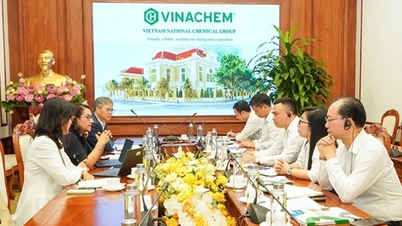

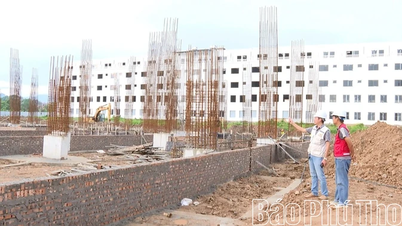

![[Infographics] An Giang Agriculture 2020-2025: Stable growth, quality transformation](https://vphoto.vietnam.vn/thumb/402x226/vietnam/resource/IMAGE/2025/10/1/bf3a77ba3a0243a697e5253ed4cd6f9c)

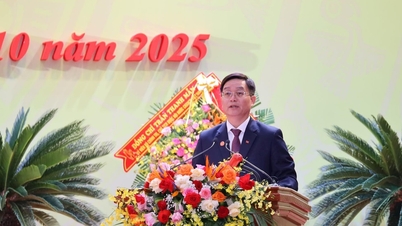

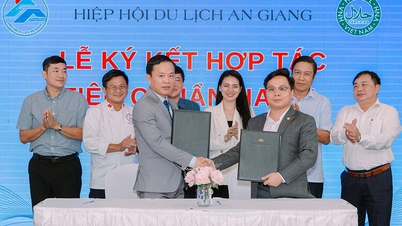



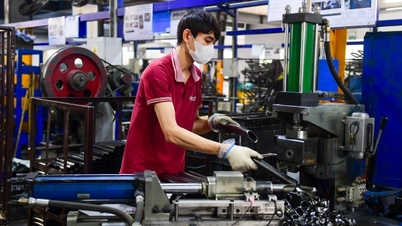



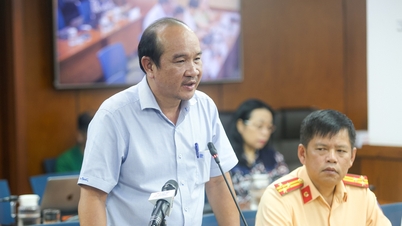







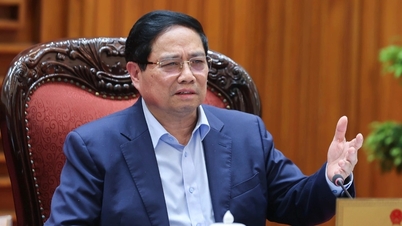
















































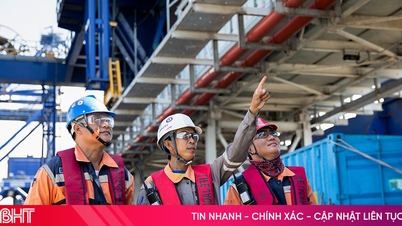

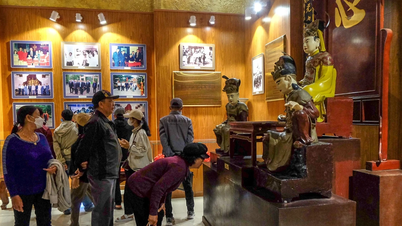

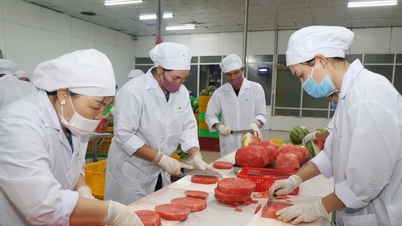

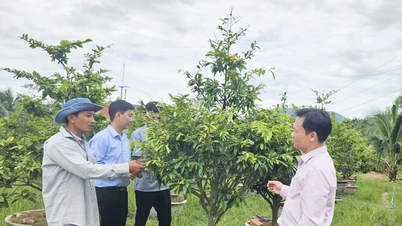
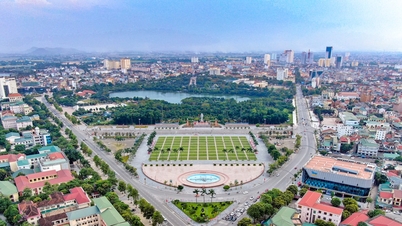

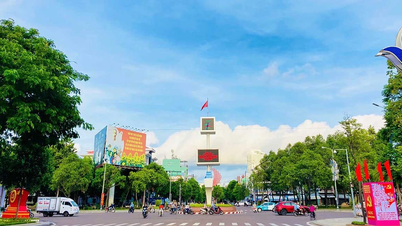













Comment (0)